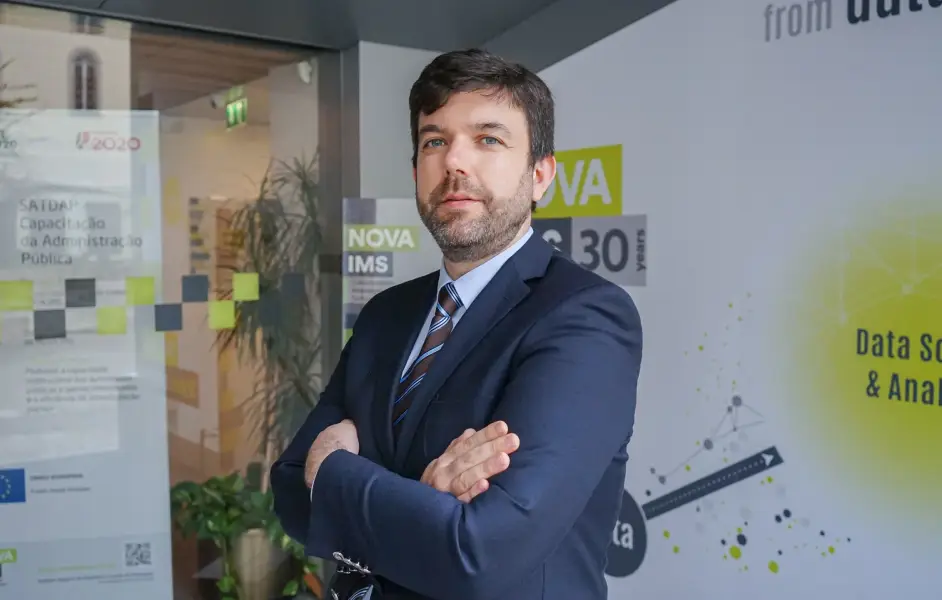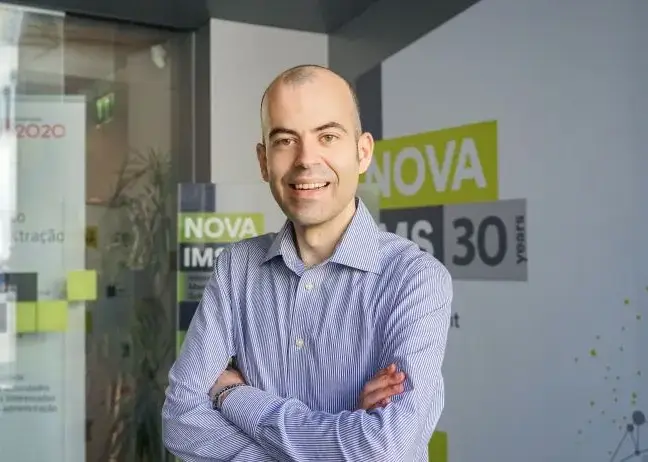Learn cutting-edge AI Techniques and real-World applications
Enhance your understanding of generative AI and shape the digital future
The Generative AI module aims to develop the digital leaders of the future. This cutting-edge programme provides an in-depth examination of generative AI technologies and their role in driving digital transformation.
Through this module, you will develop mastery in natural language processing (NLP) and transformer models, gain proficiency in prompt engineering, learn to automate tasks using AI, and adopt ethical AI development practices.
Key Details
To provide a robust and engaging learning experience, this module incorporates diverse teaching methods, including fully online learning with a blend of synchronous and asynchronous activities, lectures, seminars, and workshops. The curriculum is enriched with interactive elements such as hands-on projects, exercises, group work, and real-time collaboration. Join us to enhance your skills and become a leader in the evolving field of generative AI.
Time commitment
Classroom and demonstrations: 18 hours
Practical work/tutorials: 18 hours
Independent learning: 90 hours
Total: 125 hours
Credit points
5 ECTS
Subjects covered
Our Generative AI module covers a comprehensive range of topics essential for mastering generative AI technologies and driving digital innovation:
- Introduction to Generative AI
- Overview of AI and ML
- Applications of Generative AI
- Key Concepts and Terminology
- Natural Language Processing (NLP) Fundamentals and Transformer Architectures
- Introduction to NLP
- Text Representation with Embeddings
- Transformer Architectures and Their Impact on NLP
- Introduction to ChatGPT and Prompting
- Capabilities of ChatGPT
- Techniques for Effective Prompting
- Handling Complex Tasks with Prompts
- Examples and Exercises on Prompting
- Hands-On Exercises
- Analyzing and Refining Prompts
- Automating Work with Code and Content Generation
- Using ChatGPT to Generate Code
- Automating Content Creation
- Developing a Website with Content Generated by ChatGPT
- Developing Responsibly with Generative AI
- Addressing Biases
- Best Practices for Responsible AI Development
Through this module, you will gain a deep understanding of generative AI principles and technologies, develop effective prompting techniques, automate tasks using AI, and adhere to ethical AI development practices. This comprehensive curriculum prepares you for roles such as AI specialist, data scientist, machine learning engineer, and digital transformation consultant.
Learning objectives
By the end of the full module, students will be able to:
- Analyse and differentiate between core principles and mechanisms of generative AI technologies, including text, image, video, and code generation. (Transferable Skills: analytical thinking, critical thinking)
- Evaluate recent advancements in generative AI through academic and industry research, understanding their applications and limitations. (Transferable skills: research and communication skills)
- Design and implement effective prompt engineering strategies for optimising generative AI outputs in diverse contexts. (Transferable skills: problem solving, creativity)
- Develop competencies to architect and integrate generative AI models into complex real-world applications, assessing their potential impact and effectiveness.
- Innovate by identifying and exploiting opportunities for leveraging generative AI in creating novel business solutions across various sectors and activity domains.
Module leader
Roberto Henriques, Nova IMS, Portugal
Roberto Henriques is an Associate Professor at NOVA IMS from NOVA University, and also the Programme Director of the Master’s in Data Science and Advanced Analytics. He holds a PhD in Information Management (NOVA), a Master’s in Geographic Information Systems and Science, and a degree in Biophysics Engineering. His research interests include learning analytics, educational data mining and decision support systems using artificial intelligence and data mining methods.
Roberto has been deeply engaged in a diverse range of projects, spanning machine learning,
marketing analytics and CRM, patient management, and clinical mining. His extensive expertise and knowledge have been vital to the success of these initiatives.
Roberto’s research has been published in numerous prestigious international journals and conferences. He has guided nine PhD students and over 200 master’s students through their academic journeys.

Module leader
Mauro Castelli, Nova IMS, Portugal
Mauro Castelli is an Associate Professor at NOVA Information Management School (NOVA IMS) from NOVA University. He is also the Programme Director of the Bachelor in Data Science. He received his PhD in Computer Science from Università degli Studi di Milano Bicocca. He holds a master’s in Computer Science and a degree in Computer Science. His research interests include machine learning, with a special focus on evolutionary computation, deep learning, and their applications to address complex real-world problems.
His work has been published in numerous high quality international journals and conferences. He has supervised nine PhD students and more than 150 master’s students.
Mauro has been actively engaged in a wide range of projects, both nationally and internationally, centred on artificial intelligence
and digitalisation. His extensive experience and expertise have been instrumental to the success of these initiatives.

Explore more digital opportunities
Unlock diverse paths with our future-driven programme
This course will attract tech-savvy professionals and aspiring digital leaders, paving the way for careers in AI research, data science, machine learning engineering and digital transformation leadership.
Beyond generative AI, our master’s programme and micro-credentials offer a diverse range of modules designed to equip you with cutting-edge skills and knowledge. Discover how you can enhance your expertise and advance your career by exploring the full spectrum of courses available at Digital4Business.
Our Programme
Part of the Digital4Business ecosystem
This new module is a core module in the Digital4Business programme, a €19.9m EU-funded online master’s programme that is shaping the digital leaders and strategists of tomorrow. Discover how generative AI drives business innovation and efficiency, and acquire the expertise needed to lead in the digital era.
 Your Resources Hub
Your Resources Hub
We’ve gathered all the essential resources you’ll need to navigate your Master’s journey. Whether you’re looking for an overview of the course structure, key dates or detailed programme information, it’s all here for you.
FAQs
Relevant EQF Level 6 qualification required in a relevant field including but not limited to: computer science, IT, engineering, maths, business, or economics. Without this you will have an interview and assessment to evaluate certifications, qualifications or professional experience.
Minimum B2 English proficiency, plus 2 years’ work or education in an English-speaking environment. IELTS: 6.0; TOEFL PBT: 600; TOEFL CBT: 200; TOEFL iBT: 100. Alternatively, proficiency may be assessed via a test or interview
This EU co-funded programme is open to all EU27, EEA, UK and Ukrainian nationals with a passport or valid ID from one of these countries.









)